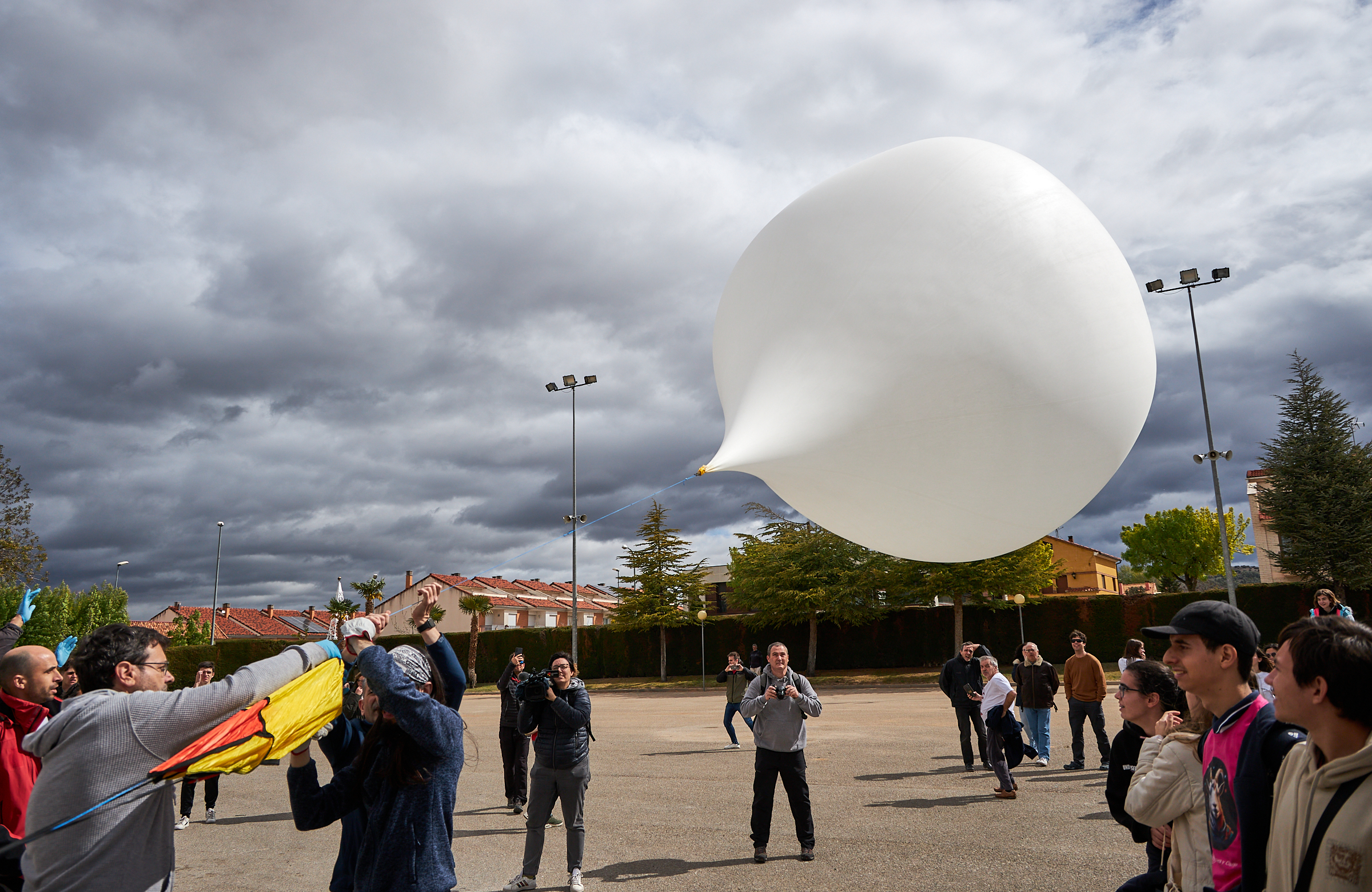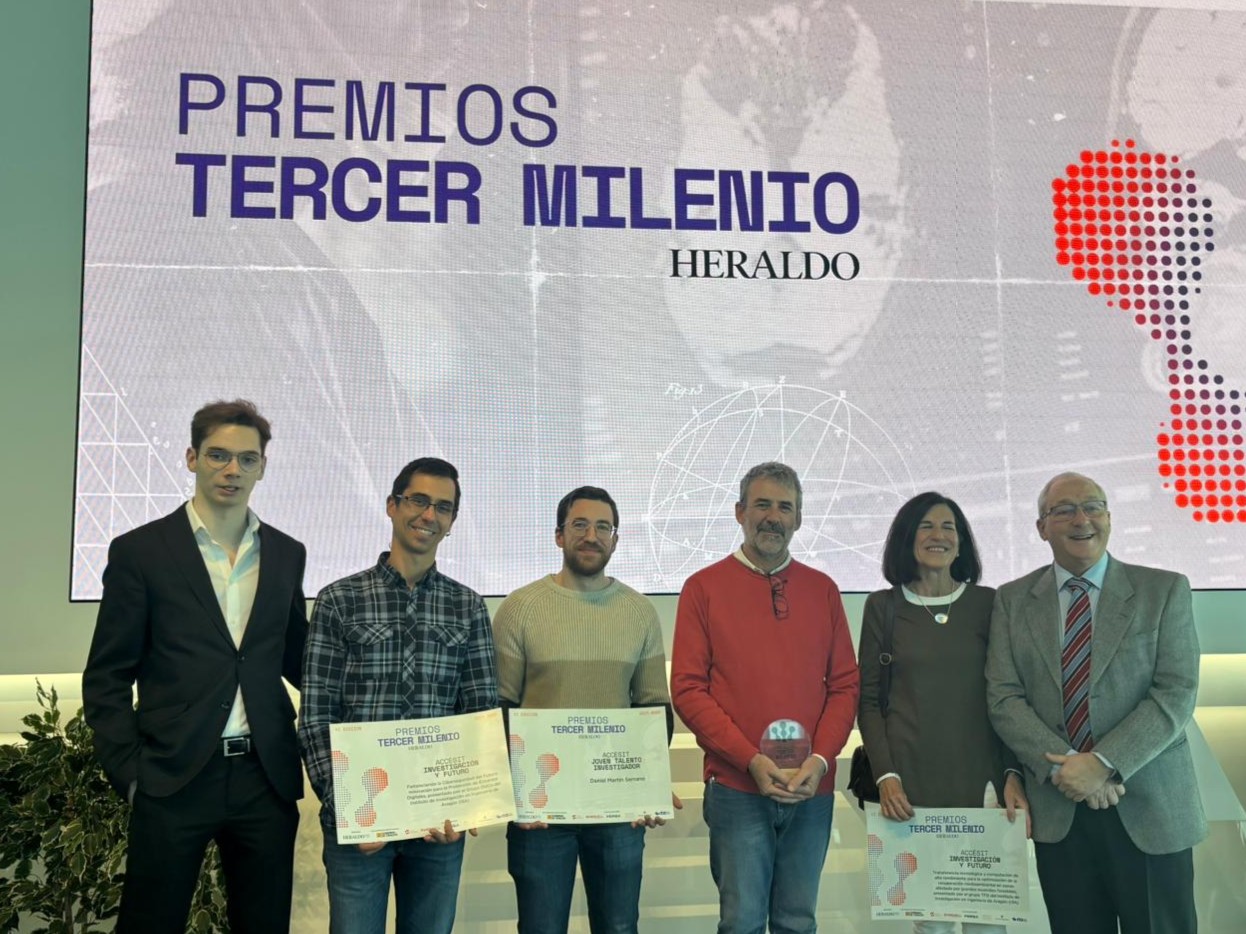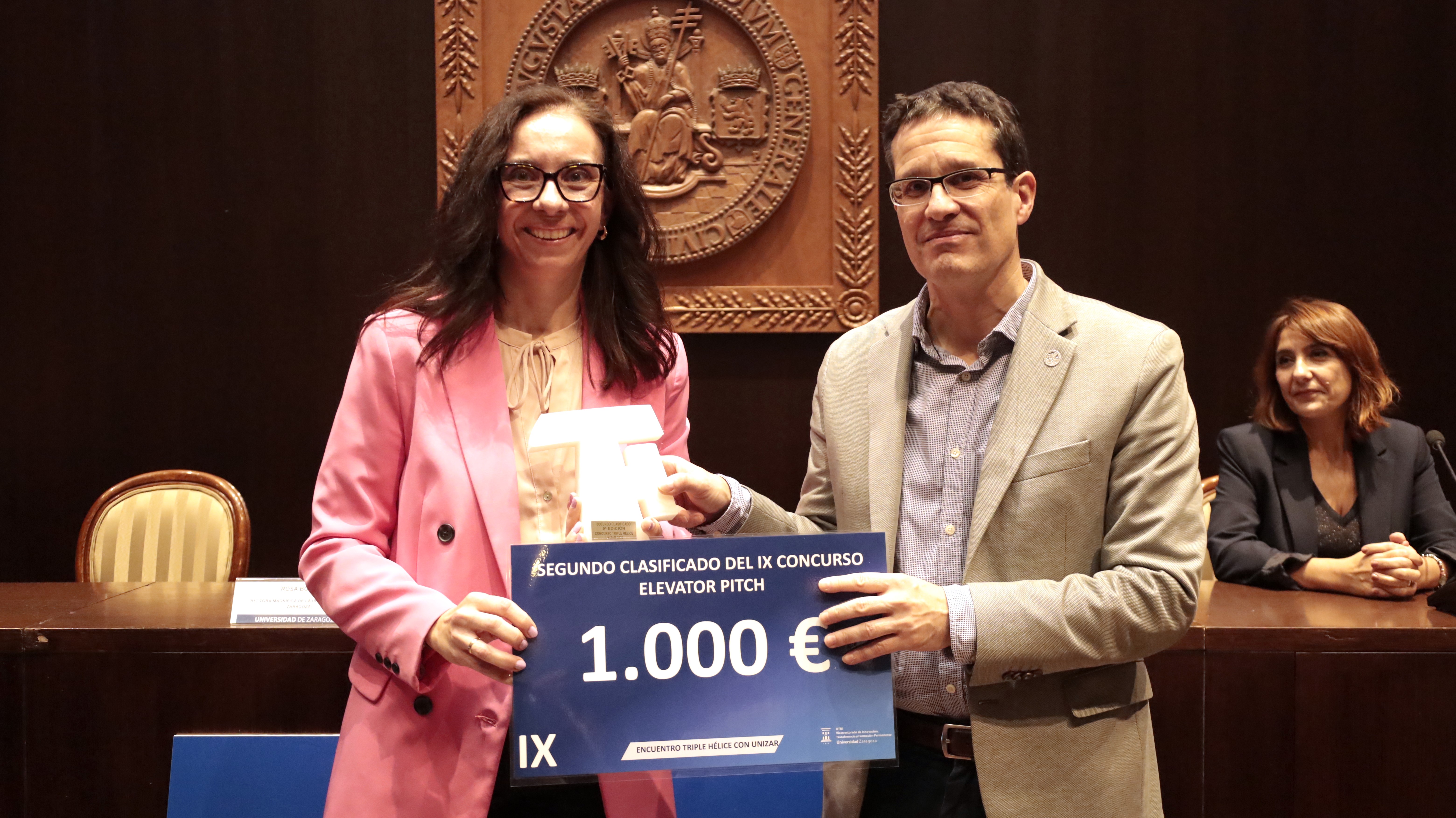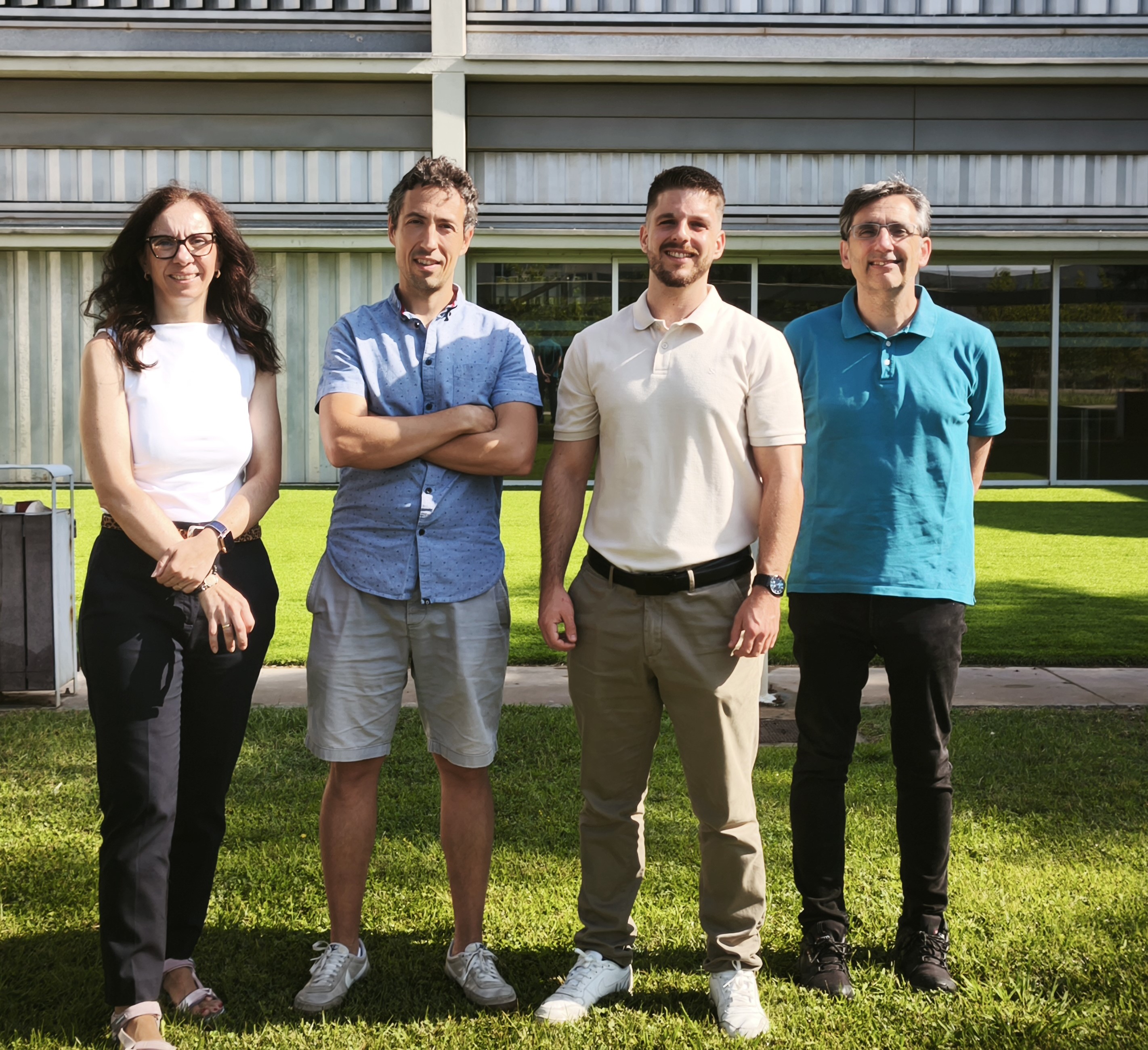
The citizen science and space exploration project Servet, the result of the collaboration between Ibercivis Foundation, University of Zaragoza, through the Aragon Engineering Research Institute (I3A), and the Spanish Foundation for Science and Technology (FECYT), has been awarded with an Honorable Mention at the prestigious Premios Europeos de Ciencia Ciudadana 2025, recognizing their contribution to publicly accessible space exploration.
Esta mención honorífica destaca la innovadora infraestructura desplegada por el proyecto que en palabras del jurado: “Permite a la ciudadanía participar activamente en la exploración de la estratósfera". El proyecto consiste en realizar experimentos científicos diseñados por la ciudadanía que posteriormente son lanzados al espacio. Los globos están hinchados con helio y transportan las cápsulas que albergan estos experimentos. Estos globos suelen alcanzar en sus lanzamientos más de 30.000 metros de altura, llegando a la estratosfera.
The European Citizen Science Awards are organized by the European Commission, as part of the project IMPETUS y premia y promueve proyectos excelentes con impacto social y político a favor de una sociedad plural, inclusiva y sostenible.
The Honorable Mention was announced at an event held in Brussels and organized by Ars Electronica el pasado 19 de junio. Francisco Sanz, director ejecutivo de Ibercivis, recibió la noticia en presencia de Marc Tachelet, director de la Agencia Ejecutiva Europea de Investigación (REA). Tachelet subrayó la importancia de "hacer que la investigación sea más impactante, cercana a la ciudadanía y que permita una mayor confianza en la ciencia".
Servet, citizen science to the stratosphere
At all times, Servet participants have scientific advice to refine their research and analyze the data obtained. This model has allowed that, in the ten editions of the project - the first balloon was launched in June 2017 - hundreds of people and dozens of educational centers throughout Spain have been immersed in this citizen science initiative with an approach inspired by maker communities and Do It Yourself. What makes this project special are the citizens, who pose the scientific challenge, decide what to analyze and how to develop it, always with the support of the organization.
The Servet coordination and advisory team has been formed by I3A researchers Enrique Torres and Natalia Ayuso, together with members of the Ibercivis Foundation -Francisco Sanz, Laude Guardia- and a handful of citizen scientists who have put their time and knowledge at the service of the project in each of its editions.
The RIECS-Concept project, led by Ibercivis, to develop the new pan-European research infrastructure for excellent citizen science, was also presented at the awards event.
For more information about the event, please visit the following links:





